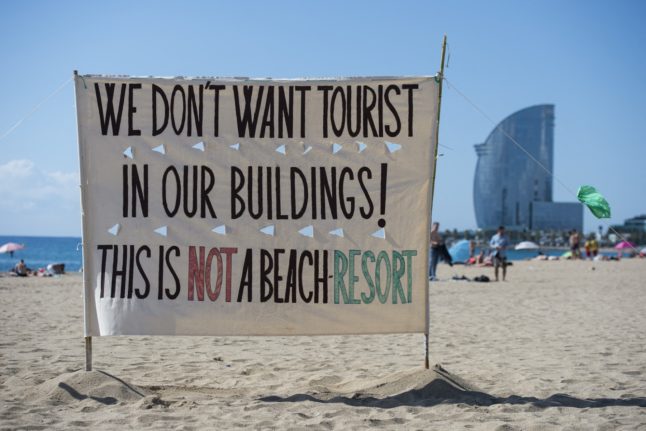Transport Secretary Grant Shapps announced on Thursday that from July 19th, fully vaccinated Brits visiting amber list countries, including Spain, would no longer have to quarantine on arrival back in the UK.
However this exemption is not extended to the majority of UK nationals who live in Spain, who will still have to quarantine when visiting friends or family in the UK, even if they are fully vaccinated.
Shapps said that the new changes would “prioritise those vaccinated in the United Kingdom” and are for “residents returning to England”.
TRAVEL UPDATE: From MONDAY 19 JULY 4am #British fully vaccinated adults will not need to isolate from amber list countries 🚦 including those on clinical trials – another step to fully reopening international travel. Children under 18 will not need to self-isolate.
— Rt Hon Grant Shapps MP (@grantshapps) July 8, 2021
The Department for Transport confirmed to The Local that this exemption is for anyone who was vaccinated in the UK or part of a UK clinical trial on vaccines.
This means that British residents living in Spain who received their vaccinations in the UK can travel quarantine-free, but the majority who got their Covid jabs in Spain will still have to undergo a 10-day quarantine if they want to travel to the UK to visit friends and family. They will also have to still pay around £160 for the compulsory travel testing package.
Speaking on Sky News on Friday morning, Shapps said he hoped to be able to have news to announced on whether the UK can recognise people vaccinated in other countries “within the next couple of weeks”.
'It's something we're very actively working on.'
Transport Secretary Grant Shapps says he'll be able to say more in the "next couple of weeks" about letting in fully vaccinated people living in other countries.#KayBurley: https://t.co/ADEpuuC7rn pic.twitter.com/0IA2n2ozim
— Sky News (@SkyNews) July 9, 2021
Essentially, those vaccinated in the UK, will be able to visit family members resident in Spain, without the need to quarantine upon return, however those same family members will not be able to visit relatives back in the UK without the need for quarantine.
Founder and CEO of The Local James Savage expressed his anger at this on Twitter when he said: “People who the UK will let in without quarantining: 1) Italians who want to watch football. 2) Brits returning from a fortnight in Shagaluf. People the UK refuses to admit w/o quarantine: 1) Fully vaccinated Brits living in the EU who haven’t seen their families for a year”.
People who the UK will let in without quarantining:
1) Italians who want to watch football.
2) Brits returning from a fortnight in Shagaluf.People the UK refuses to admit w/o quarantine:
1) Fully vaccinated Brits living in the EU who haven’t seen their families for a year.
— James Savage (@SavLocal) July 8, 2021
Many other British residents in the EU have taken to Twitter to express their anger at the new change which does not include British citizens vaccinated abroad. One said: “I was really hoping that we could all go to the UK this summer and not have the cost of all the tests plus the 10-day quarantine. This truly is heartbreaking….” while another Tweeted: “I live in Spain… What about the 100s of 1000s of Brits in Spain who might want to visit family and friends?”.
I live in Spain so Spain natch. So they aren't going to recognise the EU double-vax certificate? What about the 100s of 1000s of Brits in Spain who might want to visit family and friends?
— Stephen Burgen (@stephenburgen) July 8, 2021
Shapps explained: “We want to welcome international visitors back to the UK and are working to extend our approach to vaccinated passengers from important markets and holiday destinations later this summer, such as the United States and the EU”.
A source from the European Commission told The Local “When it comes to the UK, the talks are ongoing at the technical level and are progressing well and going in the right direction. This is in particular because technically speaking the EU’s and the UK’s architectures are aligned”.
Currently, those vaccinated in Spain can make travel easier to anywhere within the EU or Schengen Area by downloading their Digital Covid Certificate to prove they’ve been fully vaccinated, tested or have recovered from Covid.
READ ALSO: How to get a Digital Covid Certificate for travel from Spain to the EU
The UK is not currently part of the EU-wide scheme, but talks are ongoing to allow non-EU countries such as the UK and USA to join for mutual recognition of the certificates.
READ ALSO – REMINDER: Everything Brits need to know about travel to Spain under new rules in July 2021



 Please whitelist us to continue reading.
Please whitelist us to continue reading.
Member comments